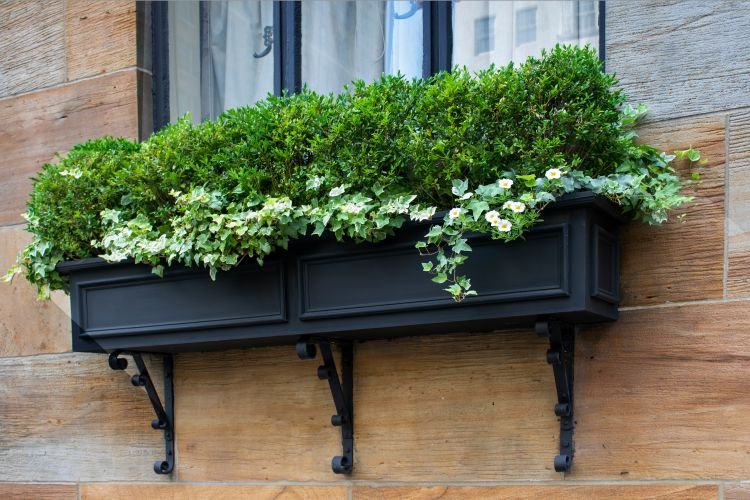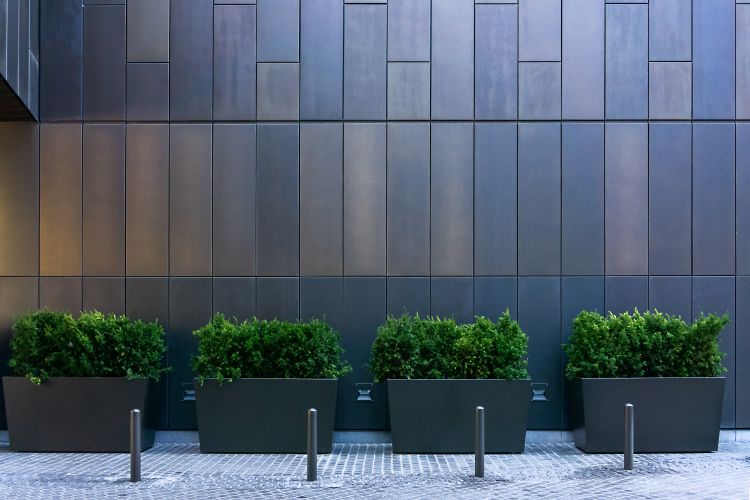 If you’re motivated to add an herb garden or flowers in your backyard, balcony, or patio, you first have to consider what type of planter boxes to use. Your planter choice will depend on your location, climate, garden style, soil type, and budget. Planters are made from concrete, steel, wood, ceramic, fiberglass, or terra-cotta.
If you’re motivated to add an herb garden or flowers in your backyard, balcony, or patio, you first have to consider what type of planter boxes to use. Your planter choice will depend on your location, climate, garden style, soil type, and budget. Planters are made from concrete, steel, wood, ceramic, fiberglass, or terra-cotta.
Nowadays, homeowners have shifted from using planter boxes made from wood, brick, or stone and now prefer those made from steel. Steel planter boxes are suitable for growing herbs, vegetables, and flowers. They’re mainly preferred because they offer more benefits than traditional gardening. However, despite their preference, steel planter boxes also have their disadvantages. This post will discuss the pros and cons of using steel planter boxes. Read on to learn more.
Pro: Durable
Steel or aluminum planter boxes are built to withstand harsh weather conditions. They can’t expand in scorching heat, crack when temperatures drop or erode during heavy rains. This cuts any replacement cost when your planters are exposed to harsh weather. Steel planters are also not susceptible to termites and insects, meaning they serve you for years.
However, if you’re looking for a lighter and more portable planter option, settle for aluminum planters. Although it’s light, aluminum is super strong and doesn’t wear quickly; this explains why it’s used in shipbuilding and aircraft fabrication. Getting aluminum planters gives you the freedom to move your planters easily, enabling you to change your layout, thus offering years of enduring style. You may want to check this recommended site for durable steel planters.
Pro: Easy To Set Up And Maintain
Of all the planter box designs, steel planters are the easiest to set up. You don’t need special equipment to design; you simply connect the pieces and arrange them to form a rectangle. You can also order an already-built steel planter. Since they’re lightweight, you only have to shift them around to change your garden’s layout.
Furthermore, steel planters require little maintenance. You only require a brush, soapy water, or a cleaning solution to scrape dirt and debris off the planters. Avoid using steel wool or acidic cleaning solution as these elements can scratch the steel planter, exposing it to rust or moisture.
Pro: Affordable
Steel planter boxes are relatively cheaper compared to concrete or brick planters. Also, steel planters can last up to 20 years without requiring replacement and with minimal maintenance, meaning they’re cheaper in the long run than wood planters.
Pro: Better Soil Aeration And Drainage
When using steel planters, you have the freedom to control which type of soil to use. This means the soil is of higher quality than soil on the ground. The soil in steel planters is well aerated and has proper drainage as it’s not compacted, allowing plants to breathe and absorb nutrients effectively.
 Con: Gets Hot
Con: Gets Hot
Steel planters can heat more than other planters because of their metallic properties. This makes it difficult to cultivate heat-sensitive plants and means that the soil loses water quickly, resulting in root damage. For this reason, steel planters may not be suitable for people living in hot climates.
If you’ve already invested in steel planters, avoid leaving them under direct sunlight or invest in galvanized steel to reduce heat’s effect. Also, consider covering the inside of these planters with clay, bubble wrap, or plastic pot liner to offer insulation properties and a barrier between the heat and the roots.
Con: Can Cause Injuries
Steel planters usually have rough, protruding, and sharp edges that can easily cause injuries when working around your garden. Cuts from steel objects can be infectious, particularly if they’re exposed to rust. Therefore, inspect your steel planters regularly and repair any sharp protruding edges before they can cause harm.
Con: Can Be Heavy
Weight varies depending on the type of metal used. However, most metals are generally heavy. If you use steel, your planters will be too heavy to move around, making it hard to switch your layout or adding extra costs of buying or hiring handling equipment.
Con: Susceptible To Rust
When you think of rust, metal is the first element that clicks your mind. This is because metals are known to rust, and your steel planters won’t be any different. In fact, since planters are more exposed to water, they’re likely to rust even faster. If you live in humid or rainfall areas, consider adding non-toxic rust inhibitors to keep your planters safe.
Conclusion
In the modern world, steel planter boxes are the most recommended planter boxes because of the various benefits they provide. However, despite all the benefits, they also have some drawbacks. We hope the above information will help you make an informed decision.




